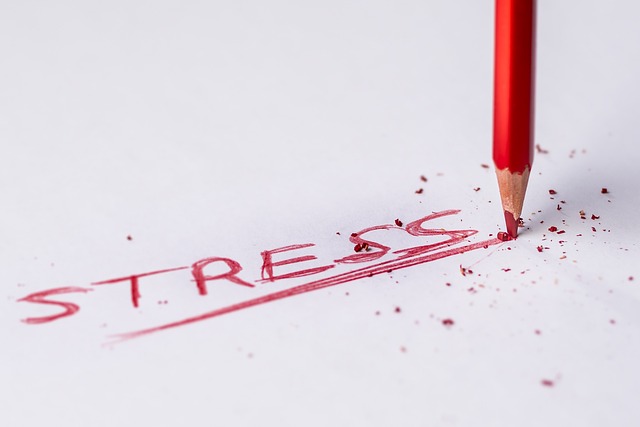
Let us admit in the current global environment stress is impossible to avoid but managing stress can greatly enhance your well-being.
Every individual experiences stress but how they respond to stress is different for every person.
What is stress?
“Stress can be defined as any type of change that causes physical, emotional, or psychological strain. Stress is your body’s response to anything that requires attention or action.” – WHO Headquarters
Stress when managed can be positive when performing work under pressure but when left unchecked can cause you to lose focus and energy.
Symptoms of stress
- Sleeping disorder
- Indecisiveness
- Binge eating
- Mood swings
- Overindulgence in alcohol, tobacco, and other drugs

ZAECY SHOP CODE ZAEMJ25 for 25% DISCOUNT
ZAECY is a newly launched PREMIUM ATHLEISURE brand for every occasion and the best part is it’s for all
MEN, WOMEN, and KIDS!
Be it TREKKING #trekking in the wild or SLAYING #slaying it in the Gym, its truly MADE TO MOVE. Embrace your fitness journey with ZAECY (www.zaecy.com) USE CODE
ZAEMJ25 for 25% DICOUNT
Turn Stress into Serenity with these Proven Practices
Managing overall stress
Exercise

Doing exercise every day can reduce your overall stress considerably. Exercise not only helps you to become fit but also helps your brain to release the happy hormone called endorphins. Engaging in any type of exercise helps manage stress and improves your mood and makes you feel happier and more positive.
Meditation

Just by doing mindful meditation practices for about 5-10 minutes every day, one can significantly reduce the cortisol level in the blood. Cortisol is the primary human stress hormone that helps to maintain stress, blood pressure, and the working of the immune system. Doing mindful meditation helps you to lower your heart rate, bring self-awareness and remove negative emotions.
Embarking on a meditation journey and not sure where to start? Check out my “A Beginner’s Guide to Mediation” post for a smooth sailing experience.
Eating healthy and consistently

What you eat greatly affects the stress level in the body. If your daily diet contains processed food, high-sugar food, and caffeine you are likely to feel more stressed. Adding food to your diet which contains healthy fats, omega-3 fatty acids, magnesium, and vitamin B12 can lower the cortisol level and reduce stress. Also, you mustn’t skip meals and maintain a proper eating schedule.
Lost in the world of nutritious eating? Let my post on “Know Your Macro & Micronutrients / Nutrition At A Glance: A Quick Reference For Macronutrients And Micronutrients” be your GPS to wellness.
Sleep

Getting enough sleep can improve your mood, memory, and decision-making. It helps you recharge your body and mind. The amount of sleep required for a person to feel rested very much depends on his lifestyle. Someone who eats healthy, exercises, and meditation will require less amount of sleep whereas someone with an unhealthy lifestyle might require 8 or more hours of sleep to feel refreshed. Using a Sleeping Eye Mask and Ear Plugs is one way to get a good night’s sleep.
Spending time with loved ones or nature

Spending a few hours with your loved one, who cares for you and greets you with positive energy, will help you reduce stress. Also spending time around trees and flowing water considerably reduces your cortisol levels.
Managing stressful situation
Breathing exercise

One of my favorite breathing exercises when dealing with stress is the “Navy SEAL breathing technique” where you inhale for 5 seconds through the nose, feel the fullness of breath for 5 seconds, exhale for 5 seconds through the nose, and then feel the emptiness of breath for 5 seconds. You can perform this exercise as often as you need until you feel calm.
Taking breaks

Taking a 5-minute break and doing some mindful exercise or stretching can significantly improve your decision-making and ability to deal with problems. So make sure you take always take enough breaks.
Music

Listening to music can have a calming effect on your mind and lower your cortisol levels. One of the first things you will notice in a stressful situation is your muscles start to contract like clenching your teeth or fist. Music can help you to calm your mind and relax your muscles.
Rain, thunder, and natural noises may also be calming, especially when combined with other music such as light jazz, classical, and easy-listening music.
Conclusion
Stress management is critical for general well-being. Exercise, meditation, proper diet, enough sleep, spending time with loved ones or in nature, breathing exercises, taking breaks, listening to music, and prioritising work are all strategies to handle stress. Because everyone’s stress reaction is different, it’s crucial to experiment to find out what works best for you. Remember that stress is a natural part of life, but how we deal with it makes all the difference. You may boost your mood, minimise physical symptoms, and improve your quality of life by adopting these stress management practises into your daily routine.

